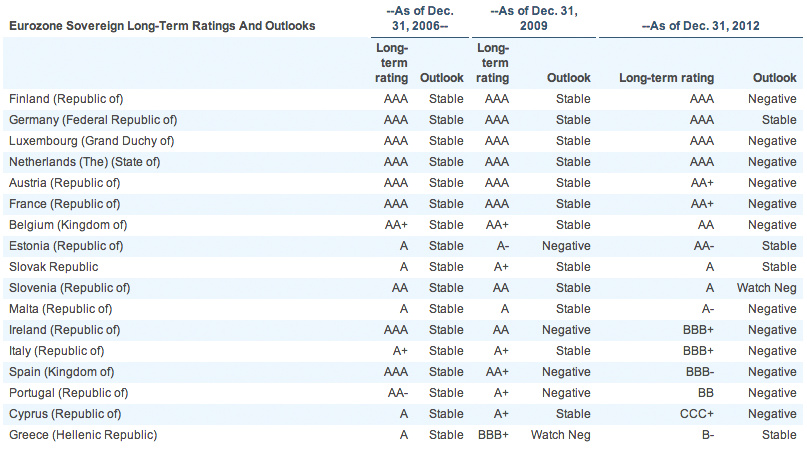- Joined
- Nov 17, 2012
- Messages
- 1,880
- Likes
- 680
Russia's economy under Vladimir Putin
Vladimir Putin was elected President of Russia on March 26, 2000, and was re-elected to a second term on March 14, 2004. On May 8, 2008, he was appointed Prime Minister by presidential executive order.


16 May 2000
President of Russia
Economic history of the Russian Federation 2000-2007
Russia posted gross domestic product growth of 6.4% in 1999, 10% in 2000, 5.1% in 2001, 4.7% in 2002, 7.3% in 2003, 7.2% in 2004, 6.4% in 2005, 8.2% in 2006 and 8.5% in 2007[9] with industrial sector posting high growth figures as well. :thumb:
ГлавнаÑ::Ð¤ÐµÐ´ÐµÑ€Ð°Ð»ÑŒÐ½Ð°Ñ Ñлужба гоÑударÑтвенной ÑтатиÑтики
Under the presidency of Vladimir Putin Russia's economy saw the nominal Gross Domestic Product (GDP) double, climbing from 22nd to 11th largest in the world.[/COLOR] The economy made real gains of an average 7% per year (2000: 10%, 2001: 5.1%, 2002: 4.7%, 2003: 7.3%, 2004: 7.2%, 2005: 6.4%, 2006: 8.2%, 2007: 8.5%, 2008: 5.6%), making it the 6th largest economy in the world in GDP(PPP). In 2007, Russia's GDP exceeded that of 1990, meaning it has overcome the devastating consequences of the Soviet era, 1998 financial crisis, and preceding recession in the 1990s.
During Putin's eight years in office, industry grew by 75%, investments increased by 125%,[10] and agricultural production and construction increased as well. Real incomes more than doubled and the average salary increased eightfold from $80 to $640.[11][12][13]:thumb: The volume of consumer credit between 2000–2006 increased 45 times,[14][15] and during that same time period, the middle class grew from 8 million to 55 million, an increase of 7 times. The number of people living below the poverty line also decreased from 30% in 2000 to 14% in 2008.[10][16][17]
Economic history of the Russian Federation - Wikipedia, the free encyclopedia
=> The Putin's Era of Russia is highlighted as below:
=> the Chart Below puts Russian Per Capita Income in the same category of many Western European Countries like Italy, Spain etc., while they are heavily indebted too........
=> also we find Ruble value stabilized since 2000 itself, as below:
Vladimir Putin was elected President of Russia on March 26, 2000, and was re-elected to a second term on March 14, 2004. On May 8, 2008, he was appointed Prime Minister by presidential executive order.


16 May 2000
President of Russia
Economic history of the Russian Federation 2000-2007
Russia posted gross domestic product growth of 6.4% in 1999, 10% in 2000, 5.1% in 2001, 4.7% in 2002, 7.3% in 2003, 7.2% in 2004, 6.4% in 2005, 8.2% in 2006 and 8.5% in 2007[9] with industrial sector posting high growth figures as well. :thumb:
ГлавнаÑ::Ð¤ÐµÐ´ÐµÑ€Ð°Ð»ÑŒÐ½Ð°Ñ Ñлужба гоÑударÑтвенной ÑтатиÑтики
Under the presidency of Vladimir Putin Russia's economy saw the nominal Gross Domestic Product (GDP) double, climbing from 22nd to 11th largest in the world.[/COLOR] The economy made real gains of an average 7% per year (2000: 10%, 2001: 5.1%, 2002: 4.7%, 2003: 7.3%, 2004: 7.2%, 2005: 6.4%, 2006: 8.2%, 2007: 8.5%, 2008: 5.6%), making it the 6th largest economy in the world in GDP(PPP). In 2007, Russia's GDP exceeded that of 1990, meaning it has overcome the devastating consequences of the Soviet era, 1998 financial crisis, and preceding recession in the 1990s.

During Putin's eight years in office, industry grew by 75%, investments increased by 125%,[10] and agricultural production and construction increased as well. Real incomes more than doubled and the average salary increased eightfold from $80 to $640.[11][12][13]:thumb: The volume of consumer credit between 2000–2006 increased 45 times,[14][15] and during that same time period, the middle class grew from 8 million to 55 million, an increase of 7 times. The number of people living below the poverty line also decreased from 30% in 2000 to 14% in 2008.[10][16][17]

Economic history of the Russian Federation - Wikipedia, the free encyclopedia
=> The Putin's Era of Russia is highlighted as below:
=> the Chart Below puts Russian Per Capita Income in the same category of many Western European Countries like Italy, Spain etc., while they are heavily indebted too........
=> also we find Ruble value stabilized since 2000 itself, as below:
Year - US Dollar exchange
1995 - 4.55 Rubles
2000 - 28.13 Rubles
2005 - 28.27 Rubles
2009 - 30.20 Rubles
Economy of Russia - Wikipedia, the free encyclopedia
Last edited:



 )
)





 This contributes to a viscous circle; more single parents – usually women, enter prostitution out of financial desperation. Due to the increase in sex workers, they need to engage in the industry more to acquire the money they need. This in turn leads to a further increase in active sex workers and a further devaluation of prostitution ad infinitum.
This contributes to a viscous circle; more single parents – usually women, enter prostitution out of financial desperation. Due to the increase in sex workers, they need to engage in the industry more to acquire the money they need. This in turn leads to a further increase in active sex workers and a further devaluation of prostitution ad infinitum.